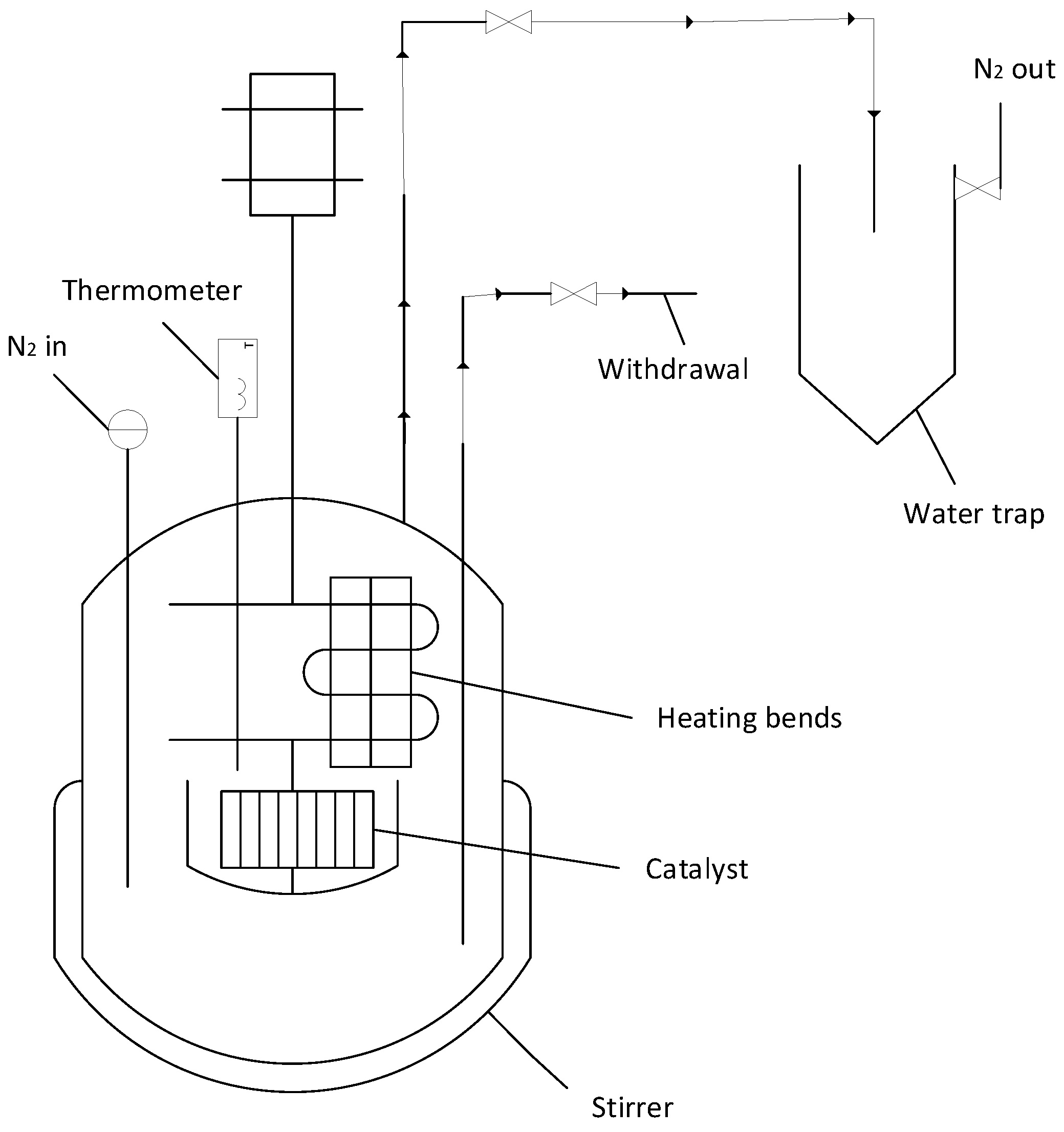Vitiello, R.; Taddeo, F.; Russo, V.; Turco, R.; Buonerba, A.; Grassi, A.; Di Serio, M.; Tesser, R.
ChemEngineering 2021, 5, 46.
https://doi.org/10.3390/chemengineering5030046
Abstract
In recent years, the use of renewable raw materials for the production of chemicals has been the subject of different studies. In particular, the interest of the present study was the use of oleins, mixtures of free fatty acids (FFAs), and oleic acid to produce bio-based components for lubricants formulations and the investigation of the performance of a styrene-divinylbenzene acid resin (sPSB-SA) in the esterification reaction of fatty acids. This resin has shown good activity as a heterogeneous catalyst and high stability at elevated temperatures (180 °C). It was tested in the esterification reaction of oleic acid with 1,3-propanediol and of oleic acid with glycerol. In particular, the esterification reactions were performed in a steel stirred batch reactor and a PBR loop reactor. Tests were conducted varying the reaction conditions, such as alcohol type, temperature, reaction time, and catalysts, both homogeneous and heterogeneous ones. From the obtained results, acid resin (both in reticulated and not-reticulated form) showed high activity in esterification reaction of oleic acid with 1,3-propanediol and of oleic acid with glycerol and good resistance to the deactivation; thus, they can be considered promising candidates for future applications in continuous devices. Viscosity tests were performed, underlining the good properties of the obtained products as lubricant bases.

